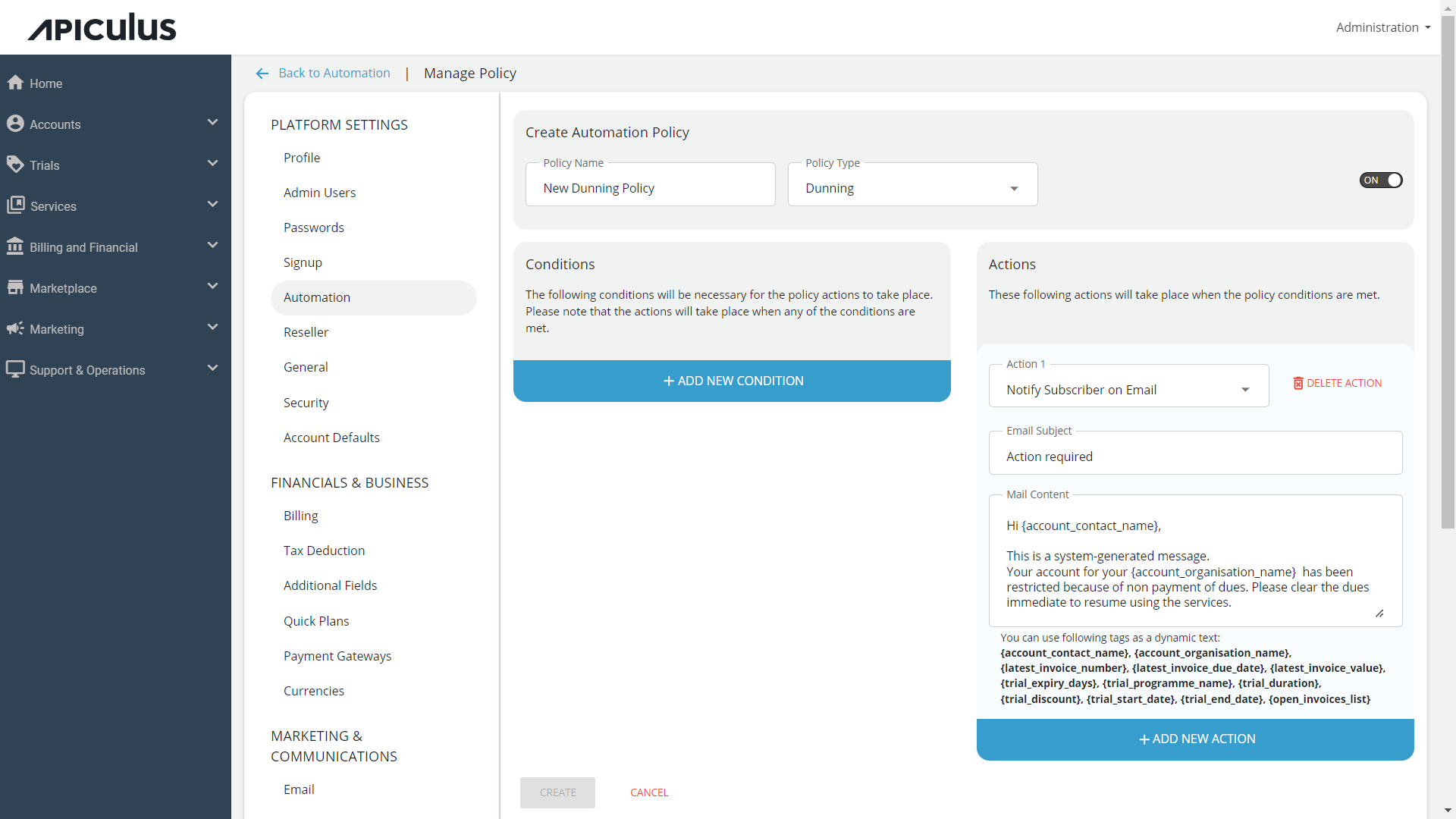Configuring Automation Policies
Apiculus allows service providers to define automation policies and workflows to handle scenarios around invoice reminders, non-payments, and customer identity verification.
Navigate to Administration > Settings > Automation to configure automation policies.
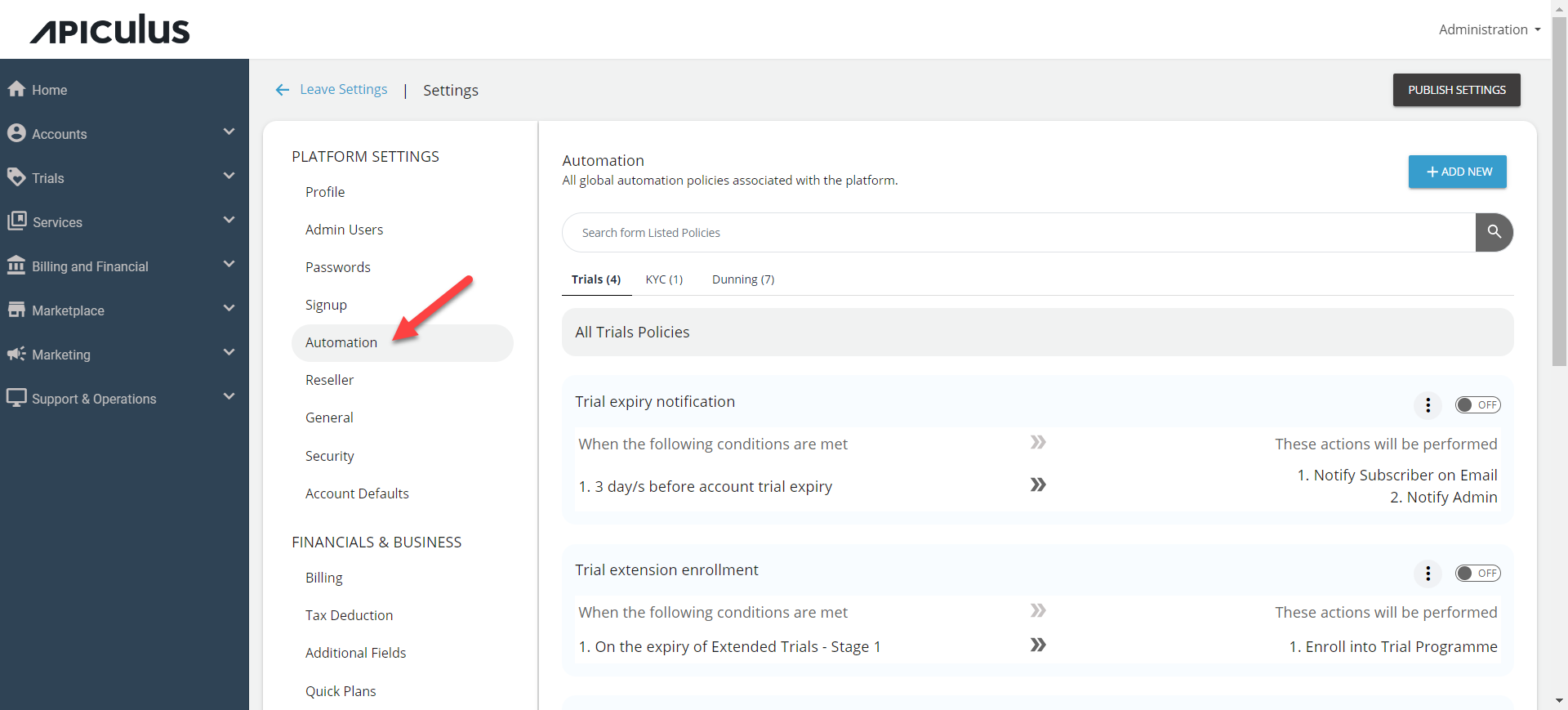
Creating an Automation Policy
Account actions can be automated by creating automation policies that trigger an action based on a trigger condition. These policies can be created globally, which are applied to all new subscriber accounts and can also be overridden for individual accounts.
- To create a new automation policy, click on Add New button.
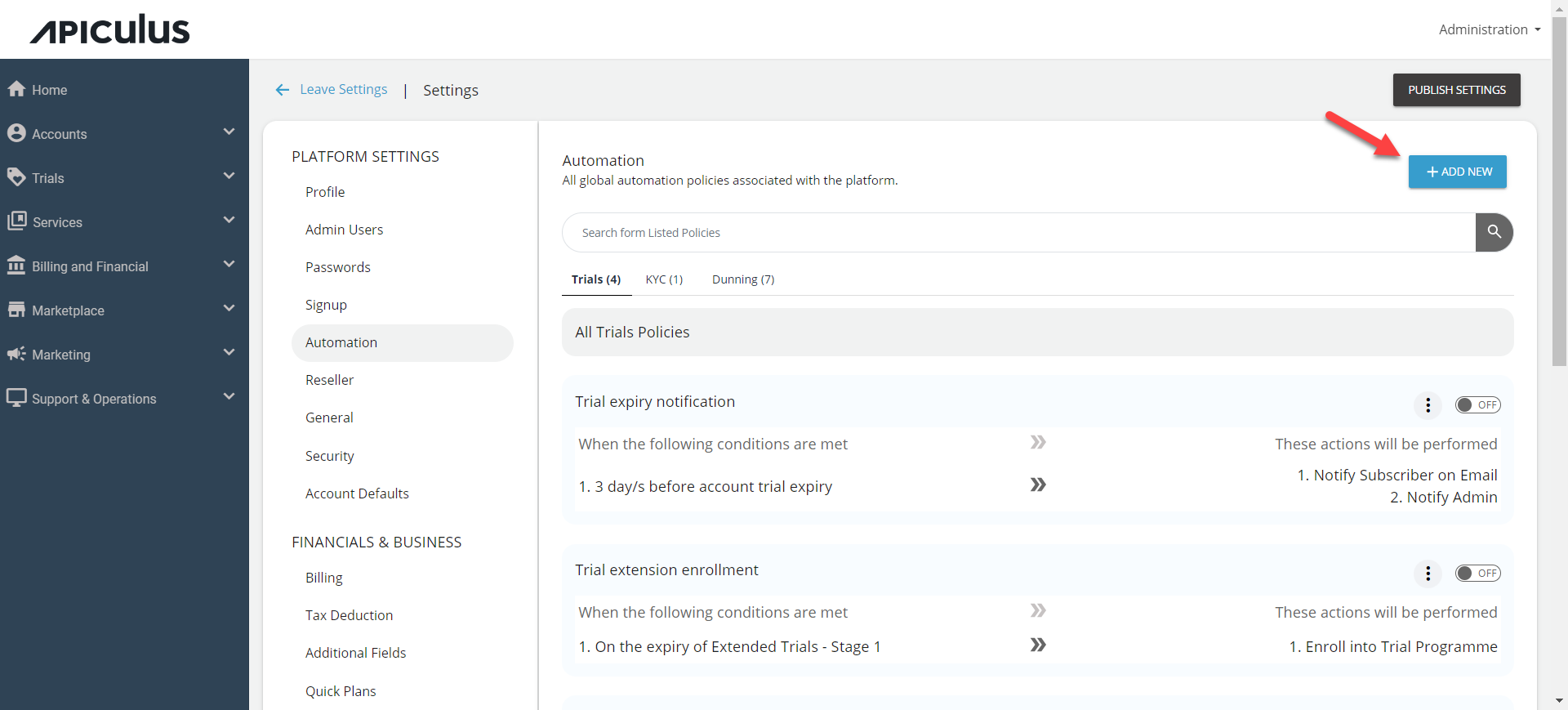
- The Create Automation Policy screen opens:
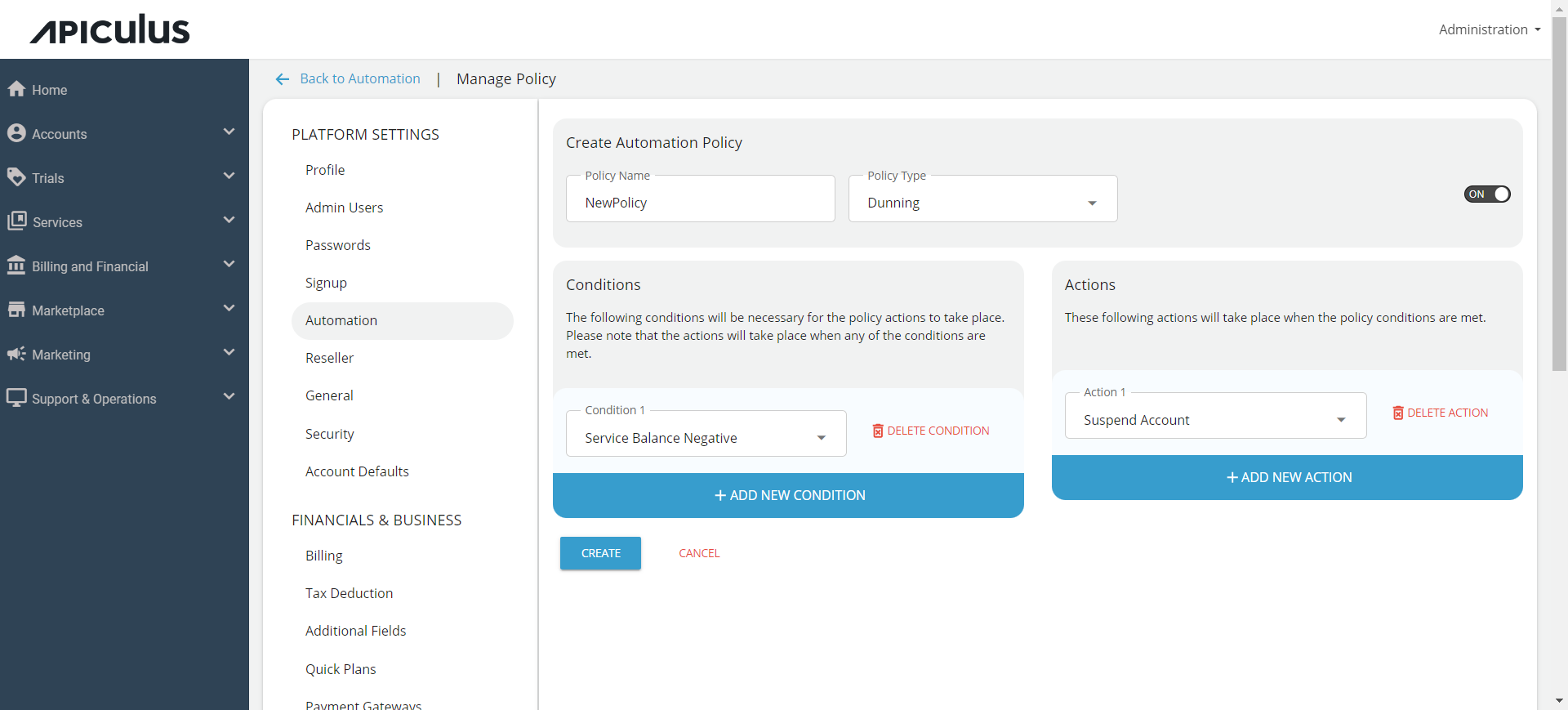
- Enter the desired Policy Name.
- Select the Policy Type. The following are the available options:
- Dunning
- Trial
- KYC
- Configure the Conditions and Actions.
- Click Create.
Configuring Conditions
The actions are triggered when the configured conditions are met.
Click on Add New Condition and select a condition from the drop-down list.
Dunning Conditions
The following conditions are available when you select Dunning as the Policy Type.
- Due date expiry of an invoice
- Negative service balance
- Service balance below a fixed value
- Number of days before the invoice is generated
- Number of days upon invoice generation
- Service balance as a percentage of the credit limit
- Transaction balance as a percentage of the credit limit
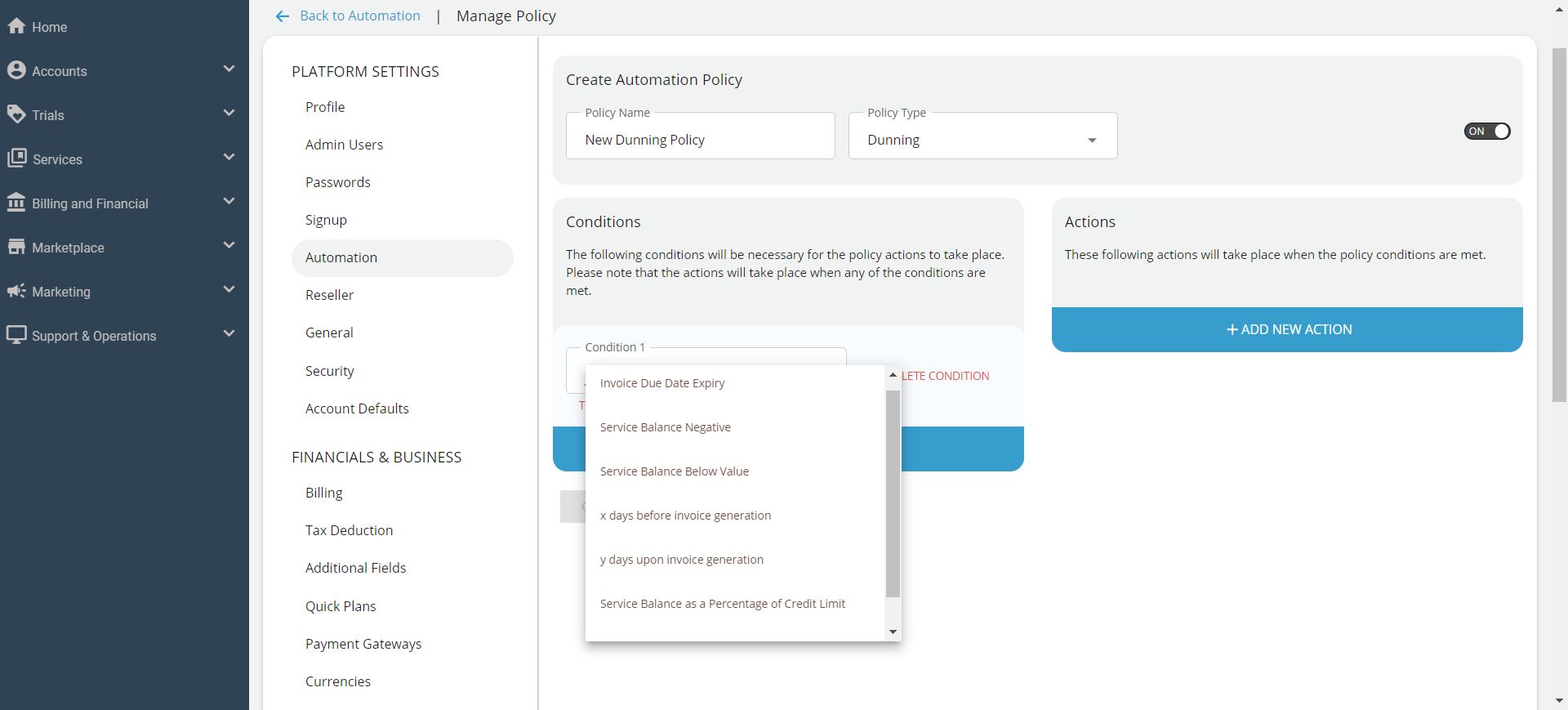
The following is an example of a configured Dunning condition trigger that checks for 3 days before invoice due date.
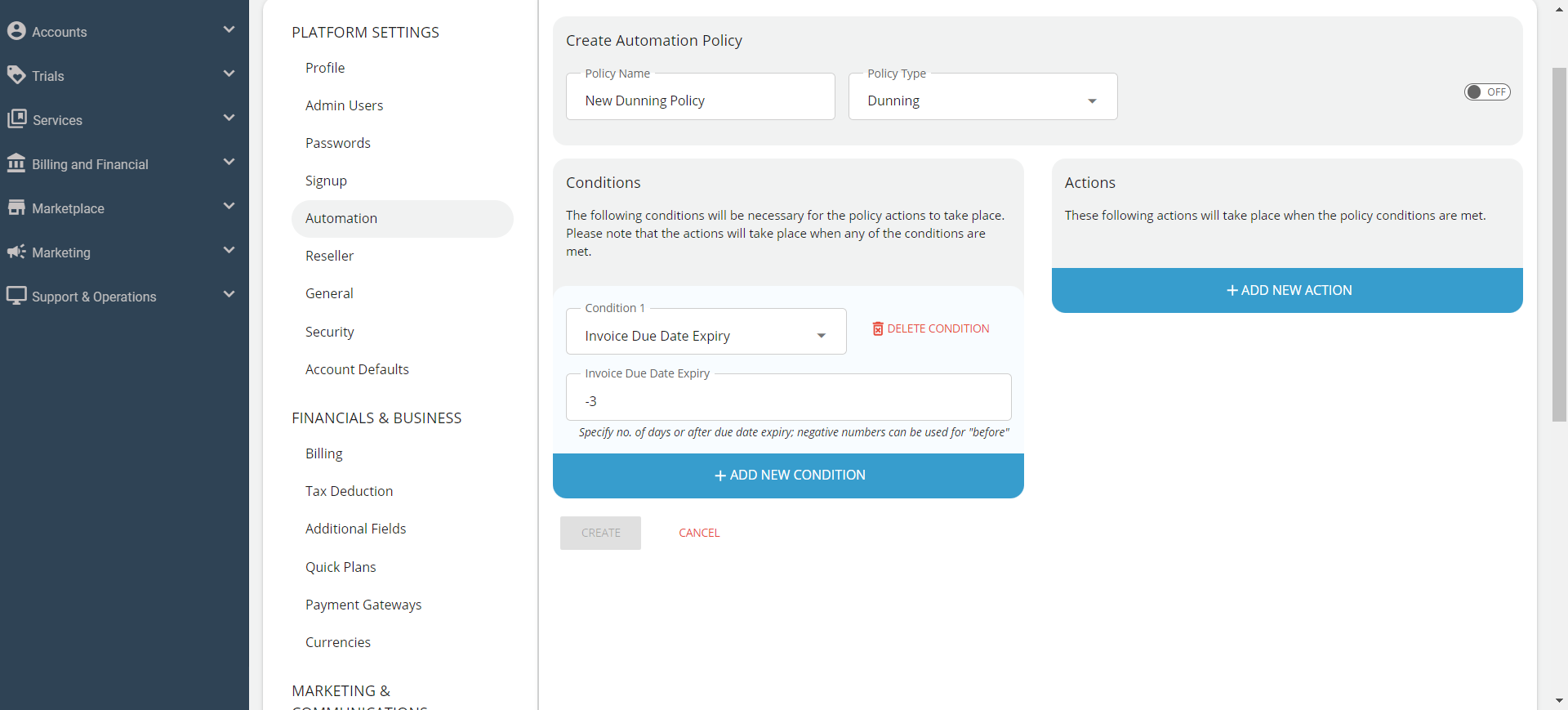
Trial Conditions
The following conditions are available when you select Trial as the Policy Type.
- Account Trial Period Beginning
- Account Trial Period Expiry
- Subscription Trial Period Beginning
- Subscription Trial Period Expiry
- Expiry of Selected Trial Programme
- On Account Creation (self-sign up or admin-assisted accounts)
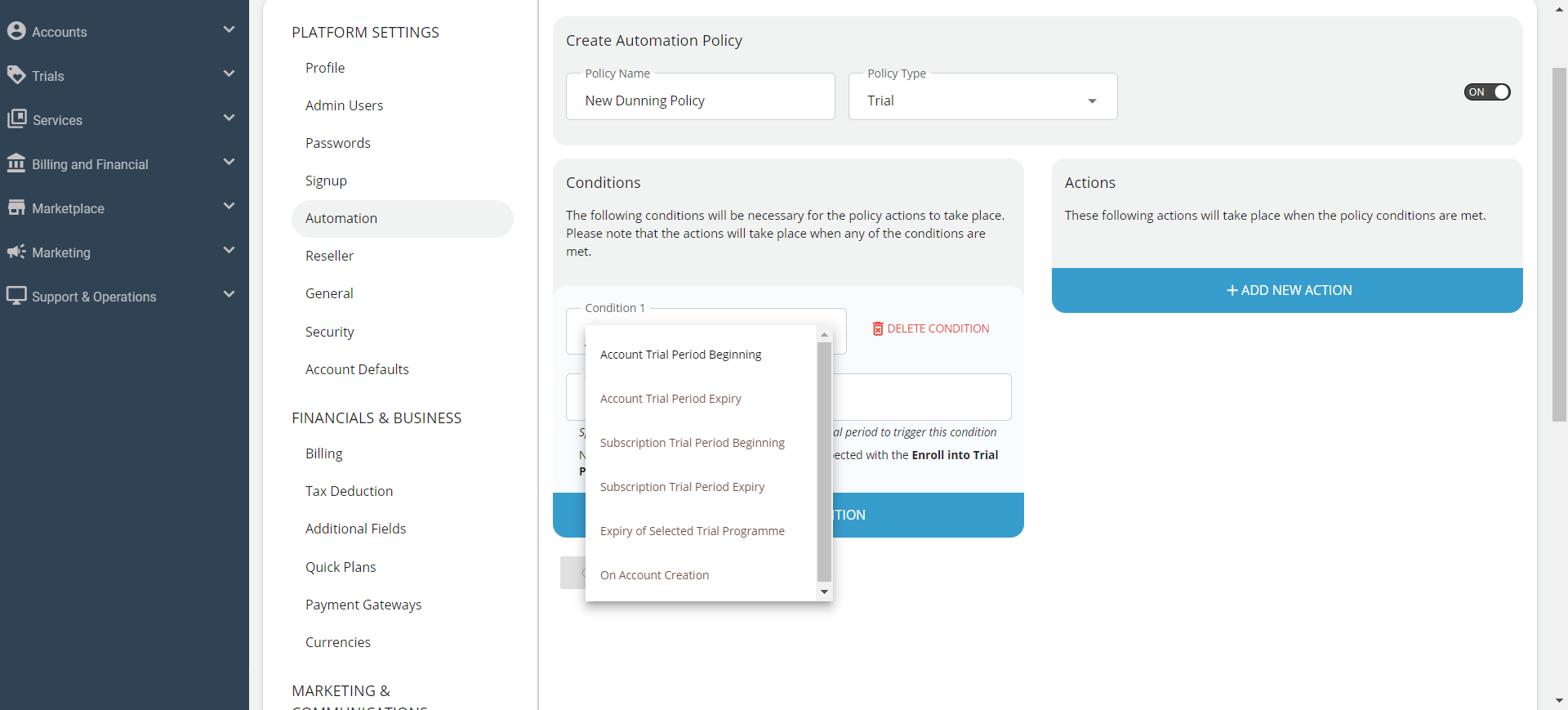
KYC Conditions
The following conditions are available when you select the KYC as the Policy Type.
- No. of days without account verification.
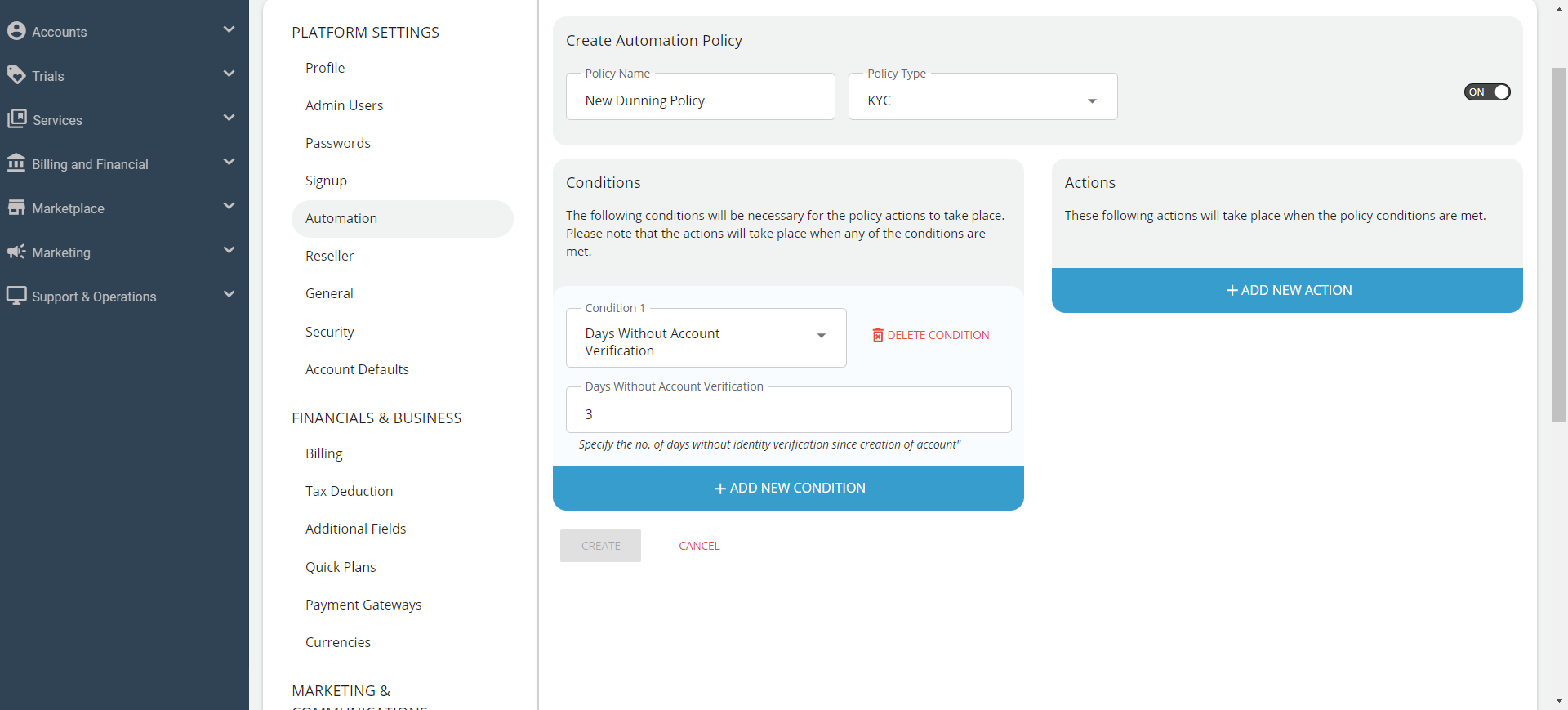
Configuring Actions
Actions are triggered based on the conditions.
To configure an action, click on Add New Action.
The following are the options available:
- Notification via email
- Notification via SMS
- Notify admin
- Suspend account
- Restrict account from new purchases
- Terminate account and delete all resources
- Enroll into Trial Programme
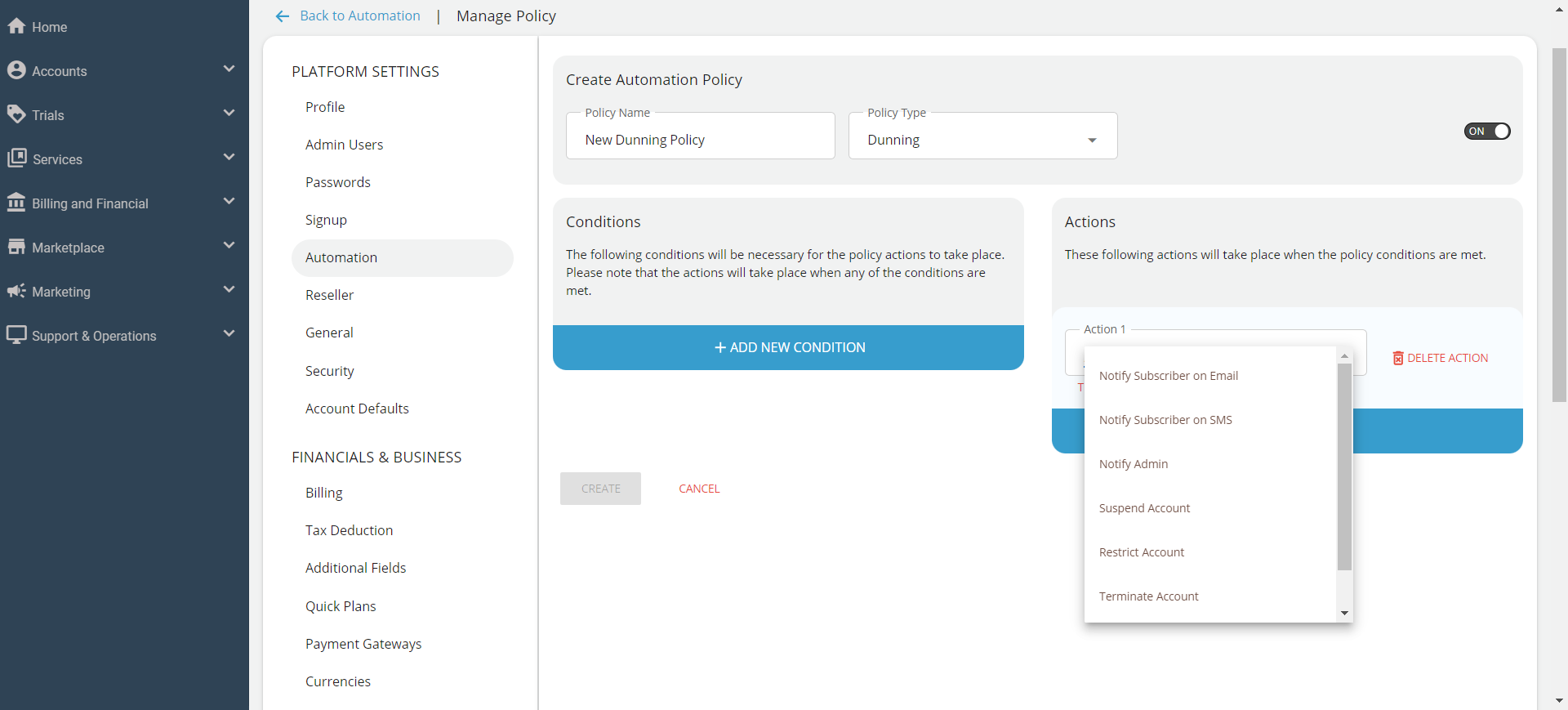
For notification actions (email and sms), you can use smart tags to insert dynamic data in the content. The following are the available Smart tags:
| Action | Smart Tag |
|---|---|
| Primary contact name | {account_contact_name} |
| Organisation name | {account_organisation_name} |
| Latest invoice number | {latest_invoice_number} |
| Latest invoice due date | {latest_invoice_due_date} |
| Latest invoice value | {latest_invoice_value} |
| Days to trial expiry | {trial_expiry_days} |
| Trial programme name | {trial_programme_name} |
| Trial duration | {trial_duration} |
| Trial discount/benefits | {trial_discount} |
| Trial start date | {trial_start_date} |
| Trial end date | {trial_end_date} |
| List of open invoices | {open_invoices_list} |
The following is an example of a Notify Subscriber on Email action using smart tags.
